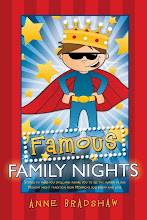Today I am pleased to post my interview with Shersta Gatica, acquisitions editor at CFI. As authors hoping to be published for the first time, and even published authors hoping to be published again, it is important to learn about the business side of publishing.
I worked with Shersta on the release of my first book, Defensive Tactics and had a wonderful experience working with her. I thought it would be helpful to ask her some questions and have her share some of her knowledge and wisdom for aspiring authors.
Interview
Shersta, thank you for taking the time to answer a few questions about the acquisitions process at Cedar Fort.
How long have you been with CFI?
About 1 year
What are your duties?
As Acquisitions Editor, I am in charge of all new submissions. I record each submission as it comes in, and then review (read) them one by one, making notes as I go. If the submission is not something I think Cedar Fort wants to publish, I will send the author a letter explaining our decision. If I think the submission is exceptionally written and is a good fit for our company, I will prepare a presentation on it, which I give at our weekly team meetings. If the submission is accepted, I then create and send out contracts and other materials. I monitor and facilitate any contract negotiations and special terms, as well.
Once we’ve signed a book, I will then prepare an announcement for the other members of my team, and oversee the transfer of the text and publication materials to the editorial and design departments. In addition, I actively research and solicit new book ideas from various media and print sources, as well as stay informed as to current trends in the marketplace.
Can you give us an idea of how many manuscripts are submitted to CFI annually and the percentage of manuscripts accepted for publication?
It varies, but I would estimate we receive about 1,000 submissions annually. Of those, we publish approximately 6-8 a month, which is less than 10%.
Do you see a large influx of submissions following NaNoWriMo? Is any time of year better than any other for submitting a manuscript?
Yes. And no, each submission is given equal consideration. The one exception would be seasonal submissions like Christmas, etc. We like to see these in January. It is best to anticipate about 9 to 12 months from submission to release, sometimes more.
Who is involved in the acquisitions process and how does it work?
Decisions about acquisitions are made as a team, with members from sales, marketing, production, and management, together with the acquisitions editors. Once a submission has been presented, members from each team are invited to ask questions and comment on how they see the book performing under current market conditions, the financial and logistical implications of production, etc. All final decisions are made by management in a separate meeting.
What are the three main concerns a publisher has in deciding whether or not to publish a manuscript?
1-Content. Is the writing high-quality, well-presented, relevant, and credible? Does it grab your attention immediately, and then keep you turning the pages?
2- Market. Who is the audience? Do our readers buy this kind of book?
3- Financial. Can we produce the book in a way that is high-quality and appealing to buyers while keeping it competitively priced?
What are the biggest pet peeves for an acquisitions editor? What makes you cringe?
Ah, don’t get me started! My list is too long, but I’ll point out a few common mistakes that new authors should try to avoid:
1. Missing information. Include the Submission Form and all other requested materials with your submission. We really do use and need everything we ask for, and following the instructions really does improve your chances of getting published.
2. Calling or emailing just to see if your submission was received. If you are really concerned about it, include a self-addressed stamped postcard or envelope with your submission. It is thoughtful and shows that you are paying attention.
3. Showing up unannounced just to “talk.” If you feel the need to discuss your work in person, call and make an appointment.
4. Insulting the acquisitions editor in your cover letter. If you show that you are difficult to work with, or pushy or extremely opinionated, we will take that into consideration before we offer to publish your book. Treat us like you’d want to be treated – with respect.
What 5 things should authors avoid doing on the first page of their manuscript?
1-Avoid cliches (i.e. Weather, dreams, etc)
2- Proof-read your work. Don’t just hit the spell-check function of your word processor. READ it and fix the spelling errors before you send it in.
3- Do NOT start slowly. I read so many submissions that yours needs to stand out in some way. Hit me with it! I’ve got to be hooked from page 1.
4- [Do not]Explain why you wrote the book. This might work for memoirs and some other forms of non-fiction, but for the most part this should be in your cover letter or on the submission form, not part of the writing itself.
5- Avoid cliches. Did I say that already?
Do you have any tips for first time authors in presenting a compelling query to Cedar Fort?
Follow the submission instructions. Follow all of the submission instructions. Did I mention that you should follow the submission instructions? And then, go the extra mile. Prepare a nice cover letter with a well-written and compelling blurb (paragraph) about your book, and another paragraph about you. Put some thought and effort into it. But leave out anything that is not directly relevant to your work as an author. If you have never written anything before, say that. It won’t scare me off. And a page filled with all of your previous church callings and hobbies does not make you look good. We can tell when you’re trying too hard.
What role do BETA readers play in acquisitions?
For genres like juvenile and children’s fiction, we often will recruit readers in the target age group to review a submission. Of course, this is after the acquisitions editor has already determined that it is a possible candidate for publication. Our junior readers are not given any information about the submission, and then once they’ve read it they are interviewed by a member of the acquisitions team.
How much weight is placed on prior book sales when considering making an existing CFI author an offer on a new manuscript?
A ton (pun intended). If the book is in the same genre as his or her previous books, prior book sales are a major consideration. Sometimes, however, we will have an author submit work in a new genre, and then they are given the same consideration we would give any new submission, plus some extra for being one of our own.
Does CFI have a formula for how many books to accept in different genres?
Not really. We do prefer to produce more non-fiction than fiction, as non-fiction tends to sell better over the long term than fiction. But it still boils down to the quality of the submissions. If we don’t have enough quality non-fiction, we’ll accept more fiction until we’ve filled our production schedule.
Is it useful for an author to query CFI prior to beginning a project to ensure that CFI is interested in the concept of the novel?
No. For works of fiction, we require the full manuscript before we will consider it for publication. You’d be surprised at how many times a novel will start out strong and then fall apart near the end. For non-fiction, we do accept queries as long as you include all of the requested materials.
As a major publisher in Utah and among the LDS community, does CFI have plans to extend its national market share through the acquisition of non-LDS based fiction?
Yes, we are currently working actively to expand into the national market. We have had a few notable successes in the recent past, and are always working hard to make more. However, we have decided that any national market fiction we produce will adhere to the same standards that are expected of our LDS fiction. As evidenced by recent adult national bestsellers, this is a little different than what many national market buyers might expect, or even want.
With the emergence of e-books in the publishing world, does Cedar Fort plan to acquire manuscripts for e-book only distribution?
Not at this time. E-books, while an expanding market, still represent a very small percentage of total book sales. However, this may change as the demands of our buyers change.
Shersta, thank you for taking your time to answer my questions.
I learned something and I hope you do to.
Steve


















11 comments:
Your interview with Shersta, was very informative and answered questions I think we all have when we submit a manuscript. Thank you.
Great interview. Always nice to get behind the scenes.
What an informative interview. Thank you, Shersta, for making time for it; and Steve, for writing it.
This was wonderful! It was full of useful information and things I've been wondering since signing a contract with CFI last spring. I've especially wondered about how many manuscripts they receive each year. Thank you for the insightful interview.
GREAT job, Steve. I know Shersta played a huge role in getting The Rogue Shop accepted at CFI, and it was very interesting to learn more about the process she goes through.
Thanks for the comments. I know this is going to sound really stupid, but reading through Shersta's answers reminds me that publishers and editors, are people too. Duh, right? They are working hard and have bosses to answer to and ultimately are in the business to make money. For new writers like me, its good to keep that in perspective and have some kind of basic understanding of the business so it doesn't feel like such a mystery.
Next month I'll have an interview with Emily Showgren, Public Relations with Cedar Fort.
Thank you for this wonderful interview, Steve! It is always so helpful to learn what the different houses and editors are looking for, so that writers can make educated decisions about our manuscripts.
Good interview! Cedar Fort has been great to work with on my last 3 books!
Great interview, Steve! This was very helpful.
I enjoyed this interview--great questions!
Great interview! It's cool to know more about the process. You can actually find some of this info under the FAQ of the official website.
It's kind of funny how some hopeful authors stop by just to "talk." I imagine the conversation goes something like this: *awkward pause* "So...read any good books lately?" LOL!
When my book "Who's at the Door?" was accepted, I worked with Jennifer Fielding. Does anyone know if she's still with CFI?
I'll be really interested in reading what Emily Showgren has to share next month. Thanks for the info, Steve!
Post a Comment